I have a loop that pushes back calls of std::async that are used to create objects in the pointed function and emplace them back to another vector. All the calls are pushed to the futures function and the results are ready when i used the VS debugger. However of the 507 calls, only 30 objects are actually created and i cant seem to pin point why.I have tried setting the launch policy to both async and defered but get the same result.
void load_sec_p(vector<Security>* secs, map<string, map<string, vector<daySec>>> *psa_timeline,security sec) {
Security tmp = Security(psa_timeline, &sec.tsymb, &sec.gicsInd);
std::lock_guard<std::mutex> lock(s_SecsMutex);
secs->emplace_back(tmp);
}
Above is the function being executed in the async call below is the loop that pushes back the futures
for (auto& sec : security_list) {
m_SecFutures.emplace_back(std::async(load_sec_p,&async_secs, &psa_timeline, sec));
}
The following pictures show the watch of both variables after the above loop is completed and the entire future vectors is checked for completion.

I have tried creating the objects by just using a regular for loop and appending them synchronously but it simply just takes too long(2 hours and 11 minutes long). If anyone has any advice on alternatives or how to fix my vector problem it would be greatly appreciated.
The code that checks if all the futures is shown below:
bool done = false;
cout << "Waiting...";
do {
done = futures_ready(m_SecFutures);
} while (!done);
The function is
template<class T>
bool futures_ready(std::vector<std::future<T>>& futures) {
std::chrono::milliseconds span(5);
bool finished = false;
int pends = 0;
while (!finished) {
//allowing thread to sleep so futures can process a bit more and also
//so thread doesnt reach max cpu usage
std::this_thread::sleep_for(std::chrono::milliseconds(100));
for (auto& x : futures) {
if (x.wait_for(span) == std::future_status::timeout) {
++pends;
}
}
if (pends == 0) {
finished = true;
}
else {
pends = 0;
}
}
return finished;
}
